- Home
- Jason Pinter
The Mark Page 3
The Mark Read online
Page 3
When Wallace called me into his office, the possibilities flew through my head. I knew the stories Jack O’Donnell was reporting. Sometimes when I passed him on the way back from the Flavia machine, I’d look over his shoulder and see the words on his computer.
For the last six months, Jack had been working steadily on a story so big, the Gazette was planning to run a weeklong feature upon completion. I knew what the story was. Everybody in the office did. Jack had risked every source and even his life to dig it up. Jack was investigating the brewing war between two organized crime families, a story that first took shape twenty years ago when O’Donnell wrote a book chronicling the resurrection of the New York Cosa Nostra, personified in the form of John Gotti. The book sold almost a million copies and was made into a film starring James Caan. When I was a teenager back in Bend, I bought a tattered copy at a used bookstore. It sat on my shelf like a trophy. And now, years later, in the wake of Gotti’s death, O’Donnell was exploring the new wave of organized crime—the men fighting over the crumbs of an empire, trying to create their own dynasties in the wake of Gotti’s Rome.
Due to public outcries, even the mayor had acknowledged it with hyperbolic platitudes, calling the unrest an ugly river of bile trying to flow up out of the sewers and erode the peace of the last decade. I wrote that quote down.
Following Gotti’s death, mob activity in NewYork had all but vanished. But recently bodies had been turning up, each punched with more holes than a drug addict’s memoir. Talking heads got worked up on Fox News, warning us that the sleeping giant had awakened. A man was shot dead outside a famous Chinese restaurant. A fire broke out at a tailor shop in the meatpacking district. There were murders so ghastly the papers tripped over themselves to see who could color it in the purplest prose.
The two men assumed to have picked up the slack were Jimmy “The Brute” Saviano and Michael DiForio. While I’m all in favor of creepy nicknames, “The Brute” seemed a little too overt for my tastes. Too in-your-face. Like a guy nicknaming himself “Killer” in the hopes it would make up for the fact that one of his testicles hadn’t descended.
The Saviano family had started out small. More like a crew with a couple dozen loyal thugs who knew their chance to pocket six figures was only possible through the noble profession of cracking heads. Guys more loyal to the amenities of the lifestyle than to Puzo’s Omerta.
But once Gotti’s crew folded, his men searched for a new start, another strand of crooked DNA. Most shifted allegiances, promising obedience to Saviano.
The other family, the one that seemed to be instigating this 21st-century war, was led by Michael “Four Corners” DiForio, who’d inherited the mantel from his father, Michael, who’d inherited it from his father, Michael. Clearly originality wasn’t what put the family on the map.
In my opinion, the nickname “Four Corners” was much more effective than “The Brute.” It referred to DiForio’s preferred disposal of his enemies, via the act of literally cutting him—and sometimes her—limb from limb and sending them to the four corners of the earth. Obviously nobody had informed DiForio that the earth was round. After all, it really is the thought that counts.
I knew I had to cut my teeth before getting close to stories of that caliber. Yet in the back of my mind I hoped Jack might have heard some good things, come across my clips from Bend. Maybe he’d need help with research, someone to make a few phone calls, pick up his dry cleaning, whatever.
Wallace called me into his office on a Thursday, and I was pretty sure he could see my heart beating through my shirt. The thin smile on his lips meant he surely had a hard-hitting story for me. Something from the top of the pile. Uncovering some deep-rooted corruption that helped the common good. I had no sense of entitlement and wasn’t driven by ego or narcissism. I just wanted to be the best damn reporter the world had ever seen.
My chin dropped when he handed me a white index card. A name, telephone number and address were scribbled on the front. Without looking up Wallace said, “I need an obituary for tomorrow’s paper. I want to see copy by five o’clock.”
I stood there for a moment, scanning his face for sarcasm. Maybe Wallace had a sense of humor. Nope, nothing.
“All right,” I said, pulling out a notepad and pen. “Who’s…ahem…Arthur Shatzky?”
Wallace scratched his beard. “Arthur Shatzky is—was, I should say—a classics professor at Harvard until he retired about fifteen years ago.” Wallace looked at me, tented his fingers and breathed into them. “Write something nice, Henry. Jack O’Donnell was an old student of Arthur’s.”
I wrote down the info, my heart slowly sinking. Not exactly front-page material.
“And Jack didn’t want to take the story?” I asked. Wallace laughed.
“Jack O’Donnell is a national treasure. He writes what he wants, when he wants. He hasn’t written an obituary in forty years.” Wallace stood up, clamped his hand on my shoulder, squeezed it gently. “Everyone’s got to start somewhere, Henry.”
I offered a weak smile and returned to my desk, making an effort not to drag my heels. Paulina shot me a quick glance that didn’t go unnoticed.
“So what’d Mayor McCheese want?” she asked.
I sat down, said, “Gave me an assignment.”
Paulina’s eyes perked up. I sensed jealousy and shook my head. “Don’t get worked up. He’s got me writing an obituary for one of O’Donnell’s old professors.”
Paulina sniffed, then blew her nose into a tissue that she let float to the floor.
“Been here one week, you’re already writing for O’Donnell.” She seemed more than a little peeved. “You get a few stories syndicated out of some Podunk paper in Bumblefuck, Ohio…”
“Oregon.”
“Same place. I’ve been syndicated around the world, Hank. And Jack’s barely said two words to me in ten years.” She took a sip of black coffee. “And now they have a flavor of the month who probably gets carded at the movie theater.”
I held it in. Kill them with kindness. “It’s just an obit. I’m not writing it ‘for’ Jack.” Paulina let out an exasperated sigh, turned back to her computer. She spoke without bothering to look at me.
“They’ll be saddling up and riding you, Henry. Oh, yes, they will. But that bronco’s gonna buck like you wouldn’t believe. So keep that golden-boy trophy nice and polished, otherwise they’re gonna pawn it and sell it to the next kid who walks through the door and can spell right.”
If I wanted to make a career out of writing obituaries, I was off to the right start. Two weeks later and the sting had been taken out of death. It refused to sink in any deeper than my computer screen. First Arthur Shatzky, then a painter named Isenstein I’d never heard of, then an electrician who’d fallen down an open elevator shaft.
There are four steps, Wallace told me, to writing a good obituary. First, their name and occupation. Second, the cause of death—even if they fell down an elevator shaft, make it sound tragic. Third, use one quote each from a former business associate and family member. Fourth, list the immediate surviving family. If they have no family, list the companies and committees that will lose their leadership. A life boiled down to a template.
I respected the dead, but in my opinion hiring a promising young journalist and making him write obituaries was like hiring Cassandra and having her make coffee. Screw ego, it was the truth.
On my third Monday, Wallace came over to my desk, interrupting my obituary of an architect whose sleep apnea had finally caught up to him.
“Henry,” he said, “I have a job for you.”
“Yeah? Who died now?”
Wallace gave a hearty laugh. “No, nothing like that. You’ve seen Rockefeller Center, right?”
“I’m vaguely familiar with it. We do work here.”
“So you’ve seen those spiders they have out front, right?”
I didn’t like where this was going.
“Uh, yeah, I have.” The arachnids Wallace was referring to wer
en’t real spiders, but huge twenty-foot monstrosities some artiste had constructed out of what looked like metal from an old barbecue. The only people interested in this “art” were visor-wearing tourists and small children who climbed it like some playground out of Stephen King’s nightmares.
“I want three hundred words on the artist and sculptures. Minimum of two quotes from bystanders. Copy for Wednesday’s edition.”
I heard Paulina stem a chuckle. Rather than leaving, Wallace stood there, waiting for a response.
“I think he’s got a problem with the assignment, Wally.” Paulina. Chiming in at the perfectly wrong time. Wallace raised his eyebrows. I avoided eye contact with both of them.
“Is that true?” he asked. I said nothing. Paulina was right. I hated writing obituaries and I sure as hell didn’t want to interview bumpkins from North Dakota about metal insects the size of commercial airliners.
“You want me to be honest?” I asked.
“It would upset me if you weren’t.”
I looked at Paulina. She was pretending to type.
“I don’t think I’m cut out for this piece. No offense to spiderphiles, but to be honest you’re really not getting my best work right now. And I think you know that.”
Wallace put his thumb to his lip, chewed at the nail.
“So you’re saying you’d rather work on more interesting stories.” I nodded. This was thin ice. I was asking the editor in chief of a major metropolitan newspaper for, essentially, more responsibility. After less than a month on the job. There were probably a thousand people who’d kill to write obituaries at the Gazette, but I’d worked damn hard to get here and screw it, I could do better.
Finally Wallace said, “I’m sorry, Henry, really, but this is all I have right now. Believe it or not, these stories are important. You want…” But all I heard was blah blah blah, trust me, blah blah blah.
“You see what I’m saying?” Wallace asked. I couldn’t hear Paulina anymore; she was in full eavesdropping mode. I didn’t move, didn’t nod. I knew what he was saying, but in my heart I didn’t believe it. Then right as I was about to open my mouth, an unexpected voice rang out through the newsroom.
“I have something Parker could help me with.”
Three heads turned to stare. The voice belonged to Jack O’Donnell, and he was staring right at me. Thankfully I peed after lunch.
A slight laugh escaped Wallace’s lips, and with a flamboyant wave of his hand he directed me toward the elder reporter.
Before I could even register that Jack O’Donnell—Jack freakin’ O’Donnell—was talking to me, my legs had stumbled over to his desk. He was leaning back in his chair. A light gray beard coated his face. His desk was covered in Post-it notes and illegible scribblings. A photo of an attractive woman at least twenty years his junior.
“So you’re looking for more action?” he said. My chin bobbed and I muttered a “Yes, sir” beneath my breath. I could smell tobacco and coffee coming off his breath in waves. I wondered if I could bottle it and bring it back to my desk.
O’Donnell slid his hand under a pile of paper and removed a notepad. He scanned it, then ripped off the top sheet and handed it to me.
“Not sure if you’ve heard, but I’ve been working on some copy about criminal rehabilitation.” I nodded again, kept on nodding. “You all right, kid?” I nodded some more.
Jack sighed an okay under his breath. “What I’m doing is profiling a dozen ex-convicts, a kind of ‘where are they now’ of the scum of NewYork. Then hopefully tie that into a larger investigation about the criminal justice system and its effectiveness, or lack thereof.” More nods. I was getting good at it.
When I asked, “What do you need me to do?” my voice cracked worse than a fifteen-year-old working at the drive-thru. I coughed into my fist. Repeated myself in a much deeper tone of voice.
O’Donnell tapped the paper, underlined the name, address and phone number on the page.
Luis Guzman. 105th and Broadway.
“I’ll call Mr. Guzman to tell him an associate of mine will be coming by for an interview. I’ve already spoken to his parole board, and they’ve confirmed it with Luis. They put pressure on ex-cons to do this kind of thing, put a happy face on the correctional programs. Don’t be afraid to lean on him if he’s reluctant to talk. I simply don’t have time to interview all twelve of these people by deadline. Give me the transcript and pick out some choice sound bites. Then give copies to me and Wallace. You get what I’m looking for, I’ll give you an ‘additional reporting by’ credit on the byline.”
“Wait, so I’ll be working with you on this?”
“That’s right.”
“Directly with you on this?” O’Donnell laughed.
“What, you want me to push you around in a stroller? Guzman did a few years for armed robbery, but records show he’s been a model citizen since parole. Half a dozen good, usable sound bites, and you’re done. Think you can handle that?”
I nodded.
“I’m assuming that’s a yes and you don’t have Tourette’s syndrome.”
“Yes. To the first question.”
Jack looked me over, clapped his hand on my elbow. Wallace liked the shoulder, O’Donnell the elbow. When I got my first page-one story, maybe I’d slap people on the neck to be original.
“You do this right, Henry, I might need some more additional reporting down the line.”
This time nodding felt right.
4
I lay awake that night, my mind swimming with memories I wished could be forgotten, swept from my head and air-brushed from reality. But that would never happen. The dreams would haunt me for years. The helplessness I felt that night months ago would never leave. Yet any nightmare paled in comparison to the truth.
It was in February, about three months ago. I was finishing up a term paper, trying desperately to boost my GPA a final few tenths of a point to impress employers, as though a tenth of a point was the difference between the New York Gazette and the Weekly World News. Three sleepless nights in a row and my brain was stringing up yellow tape and preparing to go on strike. Mya and I had been fighting all week. Something about unreturned phone calls. She was in New York, I was in Ithaca. It doesn’t matter now.
Hang-up after hang-up, words we’d eventually regret. At eleven forty-five with Flaubert in my mind and sleep deprivation settling in, Mya called me childish. To say it was the straw that broke the camel’s back is like the skipper on the Titanic saying “Oops.”
I called her a bitch. I told her I was sick of our relationship. I was tired of her crap. She said I was an asshole. I told her she was right. And then I hung up on her.
I memorized the last page of blurry text and let my eyelids mercifully close. And I wondered, not for the first time, if it was worth it.
Then at 2:36 a.m., a time now branded in my subconscious, my phone rang. I answered it. It was Mya. I said hello. I heard heavy breathing on the other end, the sound of shuffling. A whimper. She was crying. About us, surely. But there were no words. I hung up without thinking twice. And then I turned my phone off.
The strains of “Love Me Do” woke me at seven-thirty. I laughed at the irony of the lyrics. I barely remembered last night’s phone calls.
After swigging from a cup of cold French vanilla, I turned on my phone. There were four messages waiting for me. I felt a twinge of guilt as I dialed voice mail. I remembered hanging up on Mya while she was crying. The girl who’d shared my bed so many nights, who’d asked me to make love to her, who held my hand when I needed it. How could I have been so cruel?
The first message froze my blood. It was filled with static, the words nearly unintelligible, but I could hear enough to make out a voice amidst the confusion.
It was Mya. And she was crying.
Please, Henry, oh, God, please pick up….
And then the call ended.
In a panic I listened to the next three messages. Two were from Mya’s parents, the last one from my
father.
I had to get to the hospital.
Suddenly I was hammering on door after door until my friend Kyle answered. In tears, I convinced him to lend me his car. I drove down to New York at 90 miles an hour, double-parking in front of Mount Sinai hospital. Kyle’s car was towed as soon as I ran inside.
“Mya Loverne,” I told the receptionist. She punched a few keys on an old computer, anger and frustration building in me with every wasted second. I sprinted to the elevator and rode to the sixth floor, my body shaking, tears pouring down my face. When I found room 612 I bowed my head and entered. I steeled myself for the worst, but the vision inside will remain carved in my brain until the day I die.
Mya’s face was covered with sterile white bandages, her skin pale and dry. Her mother and father were kneeling beside her, holding her hands, stroking her arm. I could tell they’d been crying all night.
An IV was punched into Mya’s forearm, drinking from a clear plastic tube. I could barely utter the words I’m sorry before I completely broke down.
Mya had been attacked. She’d called me for help at 2:36 a.m.
And I had hung up on her.
She’d gone to meet friends for a drink, her mother said, and was looking for a cab when a man grabbed her and shoved her into an alley. He stole her purse, slapped her across the face, then decided he wanted more. He ripped her skirt and punched her in the stomach. All the while her lover—I love you, Mya—was ignoring her. The man took his time, unzipped his pants. Mya managed to press the send button on her phone. It automatically redialed my number. That’s when I hung up. A man was gripping his hard penis while my girlfriend lay bleeding. And I was trying to go back to sleep.
Thankfully Mya carried a can of pepper spray on her key-chain. She managed to get a shot off before he could…
I love you, baby.
Oh, God.
Reeling from the spray, he punched her in the face and broke her cheekbone. Then he ran. And she lay there. Bruised. Broken. Crying in the street. And I slept peacefully.

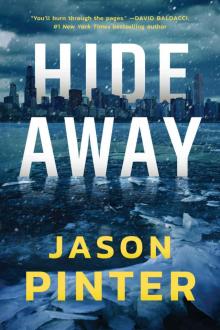 Hide Away (A Rachel Marin Thriller)
Hide Away (A Rachel Marin Thriller)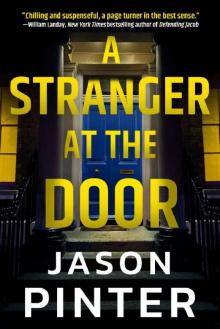 A Stranger at the Door (A Rachel Marin Thriller)
A Stranger at the Door (A Rachel Marin Thriller)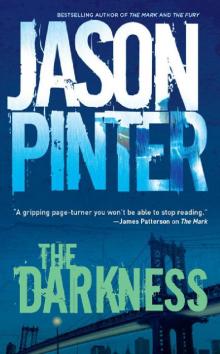 The Darkness hp-5
The Darkness hp-5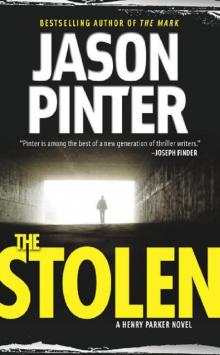 The Stolen hp-3
The Stolen hp-3 The Guilty hp-2
The Guilty hp-2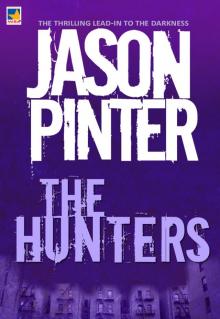 The Hunters
The Hunters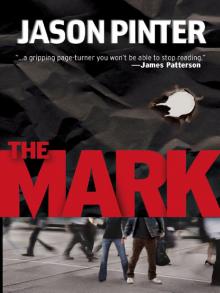 The Mark hp-1
The Mark hp-1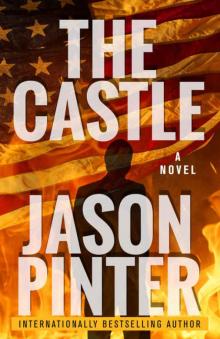 The Castle: A Ripped-From-The-Headlines Thriller
The Castle: A Ripped-From-The-Headlines Thriller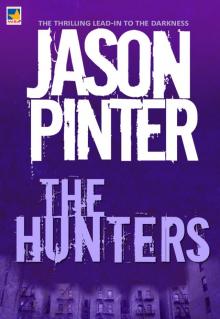 The Hunters (henry parker)
The Hunters (henry parker)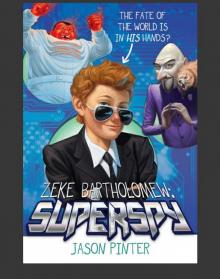 Zeke Bartholomew
Zeke Bartholomew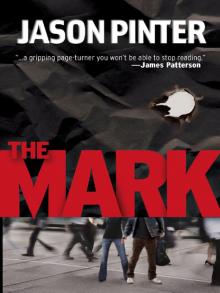 The Mark
The Mark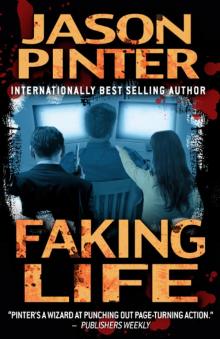 Faking Life
Faking Life![[Henry Parker 01.0] The Mark Read online](http://i1.bookreadfree.com/i2/04/08/henry_parker_01_0_the_mark_preview.jpg) [Henry Parker 01.0] The Mark
[Henry Parker 01.0] The Mark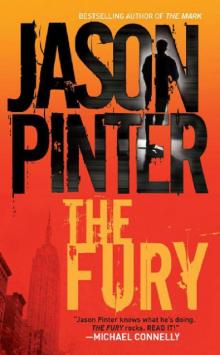 The Fury hp-4
The Fury hp-4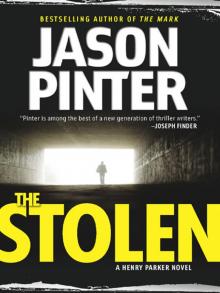 The Stolen
The Stolen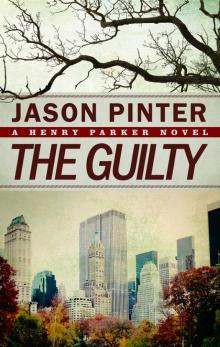 The Guilty
The Guilty